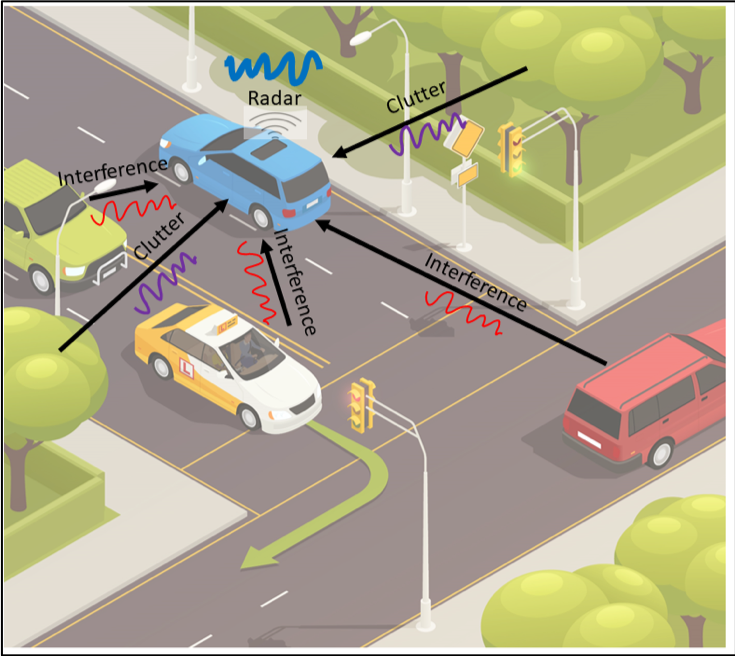Towards robust perception of radar images (NXP-ASPIRE)
Themes: Machine learning for image and video understanding
Machine learning and Signal Processing for radar systems
(digital radar, millimeter-wave radar), automotive sensors, and related applications
The ASPIRE project is a collaboration of TU Delft with NXP.
Radar images are often disturbed by noise, clutter, and interference, which sometimes leads to a misinterpretation of those radar images. Better understanding of the impact of noise and interference on radar analysis will lead to more robust interpretation of radar images and more reliable radar-based ADAS applications. Quantitative models of radar clutter and interference will enable the synthesis of realistic radar images, contributing to more reliable automated radar image interpretation algorithms and radar-based ADAS.
Some of the research questions studied in this project are:
- How can one quantitatively assess the impact of radar clutter, clutter and interference on the interpretation of radar images by means of statistical models of those radar disturbances?
- How can one use such synthetic radar image datasets to train ML models for radar image interpretation for specific ODDs, potentially yielding more reliable interpretation
- How can different ML models be developed for the interpretation of radar images for static and dynamic scenes---models that can adapt to specific ODDs (e.g. sensing for self-parking and autonomous driving)? How can such models be rigorously assessed and compared?

Project data
| Researchers: | Justin Dauwels, Ankush Roy, Ting-Ying Chu, Admitos Passadakis |
|---|---|
| Starting date: | June 2024 |
| Closing date: | June 2029 |
| Partners: | NXP |
| Contact: | Justin Dauwels |